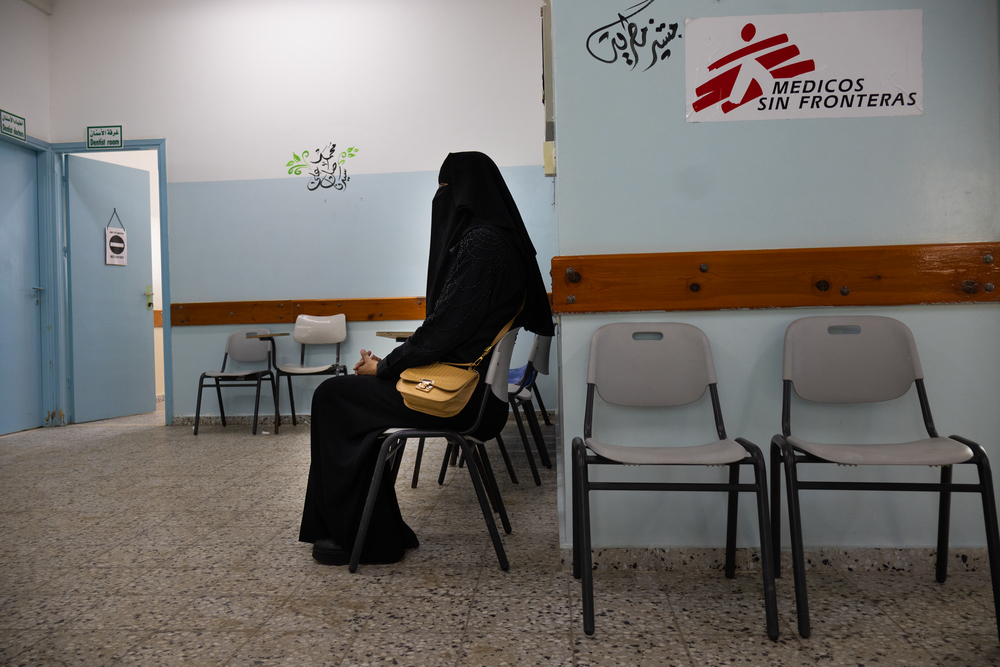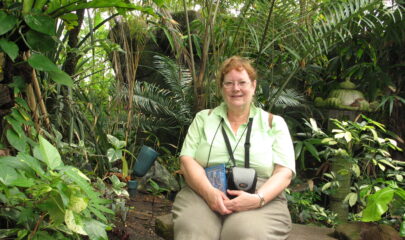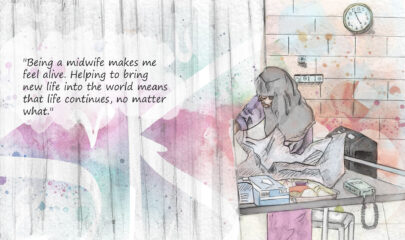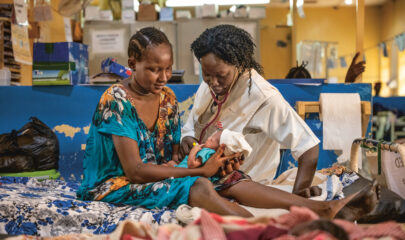MSF working to anticipate people’s medical needs
After a 14-month assignment in Jerusalem overseeing Doctors Without Borders/ Médecins Sans Frontières (MSF) mental health projects in Gaza and the West Bank, there is a story Canadian child psychiatrist Dr. Audrey McMahon will never forget.
A Palestinian colleague once told her how she had comforted her five-year-old son, who was frightened by the bombing at the beginning of the war. “She told him, ‘Don’t worry, they’re just huge birds that make a lot of noise but they will stop soon.’”
But the bombs didn’t stop. One day, the mother was tired and discouraged, unable to find water and food for her children. When her son asked why she was crying, she told him she was exhausted by the bombings. The little boy told her not to worry. “They’re just big, mean birds. Soon, they will stop.”
“Some children in Gaza are showing incredible resilience,” says Dr. McMahon, “an ability to remain children and play among the destruction, even comforting their parents. Many more, however, are deeply traumatized by what they have witnessed since October.”
A BREACH OF CHILDHOOD
“Some children don’t speak anymore because there are no more words to describe what is happening,” she says. “Some children have experienced unimaginable atrocities. In MSF clinics, we had several children who [had to have amputations] at the start of the war, often without sedation. These children have not only lost limbs but members of their families and their homes. They have seen the destruction of their neighbourhoods. Gazan children haven’t been in school for months. It’s a complete breach of childhood.”
Dr. McMahon thinks the mental health impact on Gaza’s children will last across generations. “It’s a collective trauma,” she says.
MENTAL HEALTH IMPACT ON MEDICAL WORKERS
Healthcare workers in Gaza are also grappling with the mental health impact of the war. For months, they have been facing the unprecedented challenge of providing medical assistance, while trying to survive and manage the multiple impacts of war on their own lives.
Some say they are living in constant fear, stress and anxiety, as they continue to treat patients. They describe receiving repeated, large numbers of casualties with crushed limbs and burns from explosions and having to perform amputations without sufficient pain medication or anesthesia. In addition, they are faced with the crippling shortage of medical supplies they need to provide emergency care. Many staff have fled hospitals that were forcibly evacuated or attacked by Israeli forces and some have made the unthinkable decision of leaving patients behind to save their own lives.
“We are alive, but we are not OK.”

Dr. Ruba Suliman is one of about 300 Palestinian MSF staff working in Gaza. She has been displaced from her home and is living in a temporary shelter with her husband and two children. “There is constant noise from the drones…sometimes it’s really hard to sleep,” says Dr. Suliman. “I have this moral obligation to help people around me and I have this other obligation to save my kids. We are alive, but we are not OK,” she continues. “We are tired. Everybody here is devastated.”
“Medical workers continue to work despite their emotional state, despite constant worries about the safety and security of their families,” says Gisela Silva Gonzàlez, MSF mental health activity manager in Gaza. “This increases the level of stress at work, which is already very high. The case of every patient can be an emotional trigger for healthcare workers.”
MSF staff are seeing symptoms in health workers, including anxiety, insomnia, depression, emotional avoidance and nightmares.
MSF’s mental health staff in Gaza say they are seeing symptoms linked to high levels of continuous psychological stress and exhaustion in health workers, including anxiety, insomnia, depression, intrusive thoughts, emotional avoidance and nightmares.
MSF is trying to provide mental healthcare to medical staff, but safety is an essential element required for psychological treatment. In an environment where not even the caregivers are safe, it is nearly impossible to build resilience and coping mechanisms.
According to Dr. McMahon, providing mental health support for children under active bombardment is equally difficult. “The first thing that needs to happen is a ceasefire,” she says. “In the meantime, the best thing we can do for children is to continue supporting their resilience. What our teams can offer is limited but we do storytelling and activities with the children, listen to their stories and let them express what they’re going through in drawings. But while they’re still in the midst of destruction, there is no healing.”


